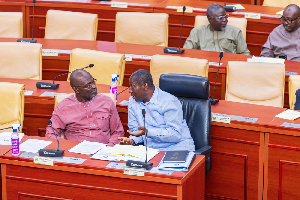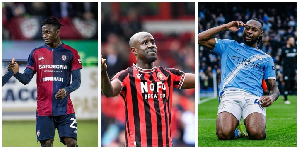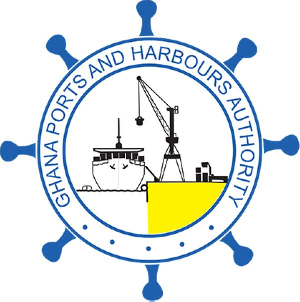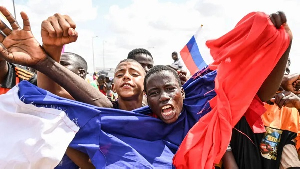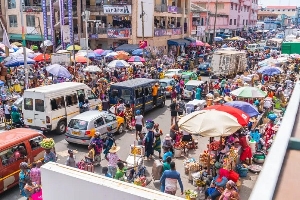One of the testimonies that stuck in my mind during Ghana’s Golden Jubilee Celebrations in 2007 was about the film industry. It was by an elderly builder (couldn’t quite catch the name) who was interviewed on Citi FM. He said whilst they were working on a structure at the Ghana Film Industry Company one day, Dr. Kwame Nkrumah came around.
According to the narration, after inspecting the project, the former President asked the workmen if they knew what they were building. As they couldn’t really point out what they building was going to hold. Nkrumah asked if they knew a list of American film heroes of the time. (I imagine, names such as Dan Vadis, John Wayne, James Bond came up). At this stage the builders all came alive. Yes, yes, they knew all theses heroes.
Then came the President’s sermon: This building is going to house the processes that would make some Ghanaians as famous as those American heroes.
Yes, there have been some strides in recent times but how close are we to Osagyefo’s vision for our film industry? How many Ghanaian movies, for instance tell the national story? How many strategically set up scenes that backgrounds the Independence Square, Kwame Nkrumah Mausoleum, Kakum Park or the Elmina Castle for that matter?
In contrast, however, the Eiffel Tower of France, for instance, has been deliberately portrayed in films so much so that the moment it appears in a scene one knows that the setting unmistakably is Paris. Getting my drift?
In plain language, putting Ghana’s tourism where we want it also demands the active participation of our film makers. Quite frankly, our filmmakers can’t do this alone. They need a nudge and more from our national branding authorities.
In telling our story as Ghanaians we must be able to project desirable images of ourselves. One of my favorite TV moments was when I heard a total stranger, Mr. Emmanuel Apea mention my name on KSM’s TGIF show that his film, ‘‘Run Baby Run’’ was inspired by an article I had written in the Graphic Showbiz. In a Ghanaian film worth its name, the theme, subject matter, style, language, costume, among others, must portray our national setting.
There is currently a cultural revolution sweeping through homes in the West African sub region. This has been engendered by the proliferation of Nigerian videos. For example, non-Nigerians including Yours Truly, now swear ‘Chineke God!’ Furthermore, when someone is the man, he is no longer referred to as Boss or Chief. The borrowed parlance is ‘Igwe’.
Good or Bad is not the issue here. What is significant is that film can be used as a force of influence. It harps on a message. When the message is persistent it becomes persuasive. Over time, the audience is forced to imbibe, sometimes unconsciously. Eventually, the message becomes normal, then acceptable and ultimately ‘true’.
How else did the Yankees achieve their macho, super-hero status? Among other strategies, decades of presenting the strong, suave, sexy American action hero who goes through fantastic escapades all in defence of ‘God’s Own Country’. Yes, the John Waynes, the Rambos, the Steven Seagals, the Van Dammes and the Schwartzzenegers were all images that were subtly used to juxtapose a certain American supremacy.
At other instances, it is Uncle Sam’s army itself that is shown fighting perceived savages such as the Russians, Apaches, the Vietnamese or Arabs. And in each one of these various encounters, you and I know who wins. The Americans used the help of movies to achieve what colonialisation could not do for the British and French.
Crocodile Dundee is a movie that was shot about Australia in the 1980’s. Prior to that, western tourists considered that country as remote and uninteresting. When the film came out, it sparked off a worldwide interest. Crocodile Dundee positioned Australia as a destination that offers adventure and warmth.
The epic, Sarafina, also of the 1980’s, was hugely sound-tracked on South African beats and rhythms. Starring Whoopi Goldberg, the film explored the dreams that South African music and dance could inspire. Thanks to the production, sales of music records from that country shot up worldwide.
I believe some of us still remember the splendid role of Lou Diamond Philips in Labamba. Not only did that film drew cheers and tears, it also scored admiration for the Mexican lifestyle. Needless to say Labamba generated patronage of Mexican and Spanish culture.
The bottom line of this discourse is that capitalising on a movie to showcase a national brand is not a task for Hercules. How many Ghanaian films for instance, have featured our national flag? Compare that to what pertains in, again, American movies. Be it a children’s adventure, comedy or even the naughty, old sexy film they flaunt their flag at the least opportunity.
Finally, let us conclude by citing a few scenarios on how to use Ghanaian movies to promote our tourist attractions. Just relax and imagine the following:
Synopsis One: An adventurous Ghanaian movie set in the deep, deep jungle of Mole Park, featuring a survival chase. However, both the hunted and the hunter endure the rugged, punishing terrain of Mole- coming face to face with hair-raising skirmishes by dangerous wildlife. But then what happens when game wardens pick up arms to find out exactly what’s disturbing the peace of Mole Park?
Synopsis Two: Nzulenzo is a peaceful, crime-free village built completely on water.
Suddenly, something mysterious happens that shatters the serenity of this Shangri-La. A new-born baby from a family linked to an ancient Malian prophesy disappears. Top Detectives from the nation’s capital descend to search for the infant, probably buried in watery graves. Have the crooked hands of crime at last found Nzulenzo? Or is the world about to witness the fulfillment of an African Armageddon?
Synopsis Three: On her 21st birthday, a pretty lady’s step dad accompanies her on a week’s luxury cruise on the Volta Lake. As the cruise progresses, our lady arranges for her boyfriend to join them. Things seemed smooth between the two dearest men in her life until at Dodi Islands where it becomes clear that the two have more in common than a pretty woman. If blood is thicker than water, what could be thicker than blood? Uncover this riddle on the cruise along the greatest man-made lake in the world, where a bizarre love triangle turns out more enigmatic than Bermuda…
Synopsis: Lt. Dzako is a specialist army officer who has served his nation and has retired to enjoy a quiet life in his native Wli. In missions abroad he had been noted as the very best in the world. Though retired, ‘Soldier Kojo’ as the villagers called him was not having the peace he needed. Strange foreigners kept visiting him mostly with unusual helicopters from across the border.
It became clear that something more than a waterfall was hiding in the small town of Wli. But when the news leaks that the hills of Wli have buried in them an invaluable cache of secret missiles things began to change. In the international press a document leaks to show that before he finally capitulated, Adolf Hitler had shipped his most decisive weapons to be hidden somewhere between Togo and Ghana. As former custodians of the area the British, the French and the Germans are all angling for a piece of the treasure hunt. In far away America, Pentagon also wants a piece of the action. Eventually, the Ghana Army moves in to rescue a lonely hero and to protect a juicy piece of national territory. Soon everyone realises that the Second World War hasn’t quite ended; and the final battle would have to be fought on the hills of Wli.
Entertainment of Wednesday, 9 May 2012
Source: Kofi Akpabli


